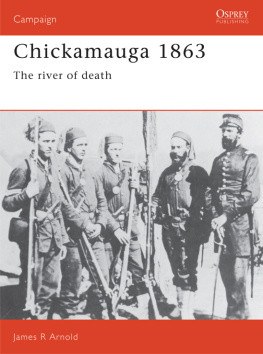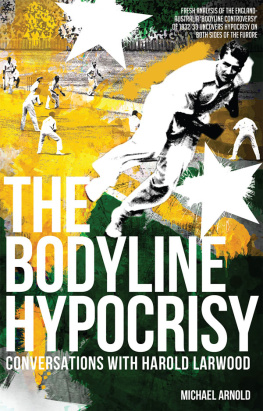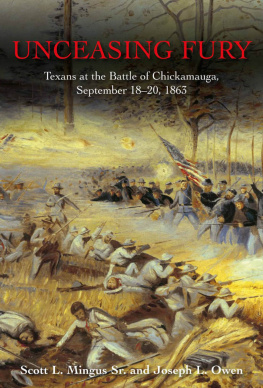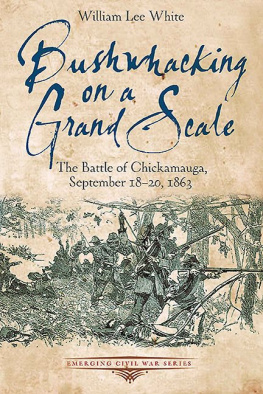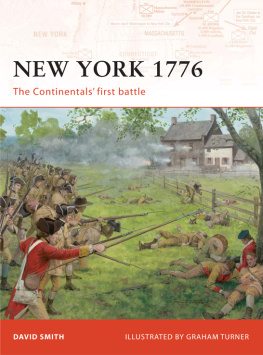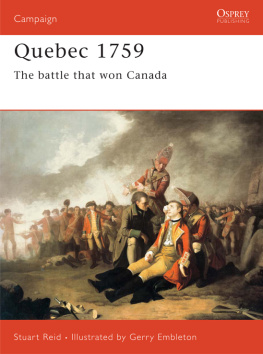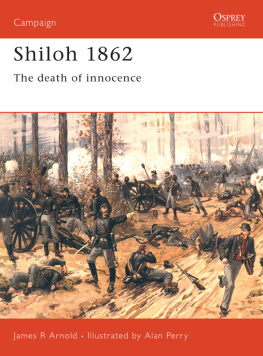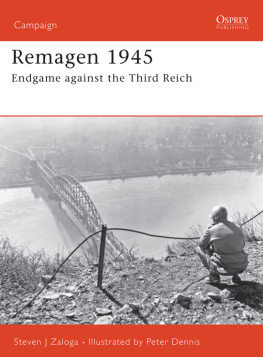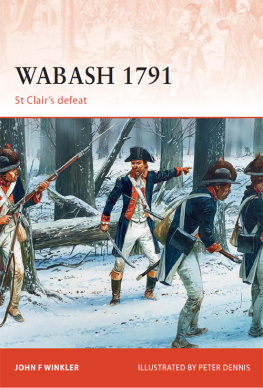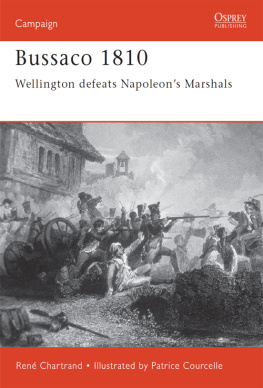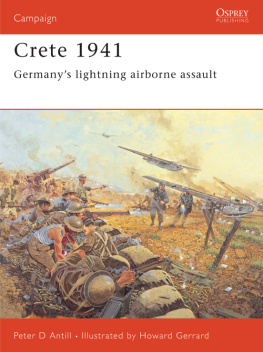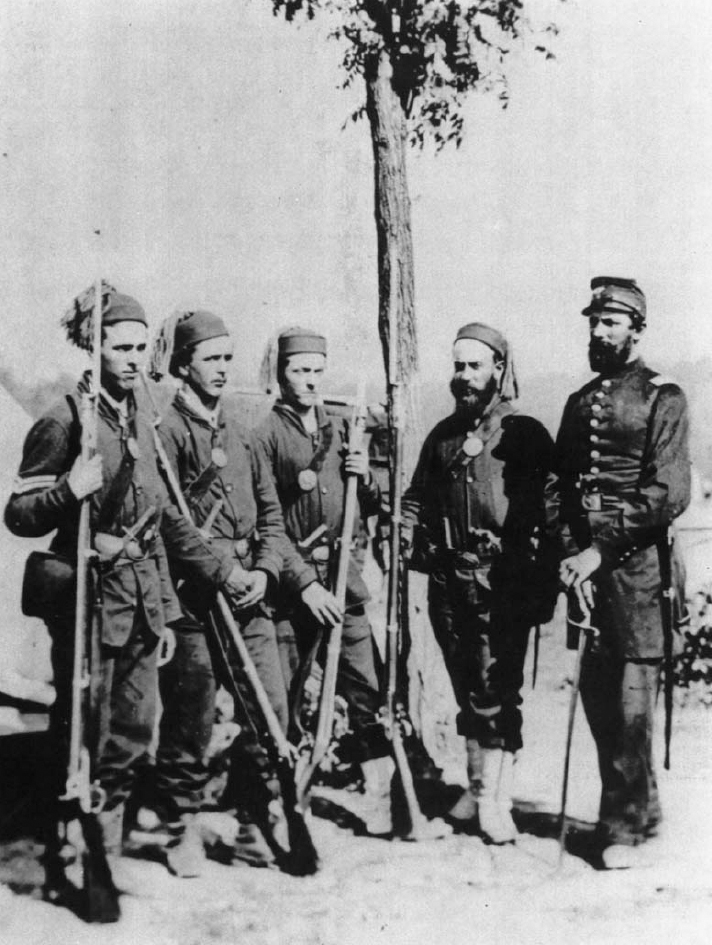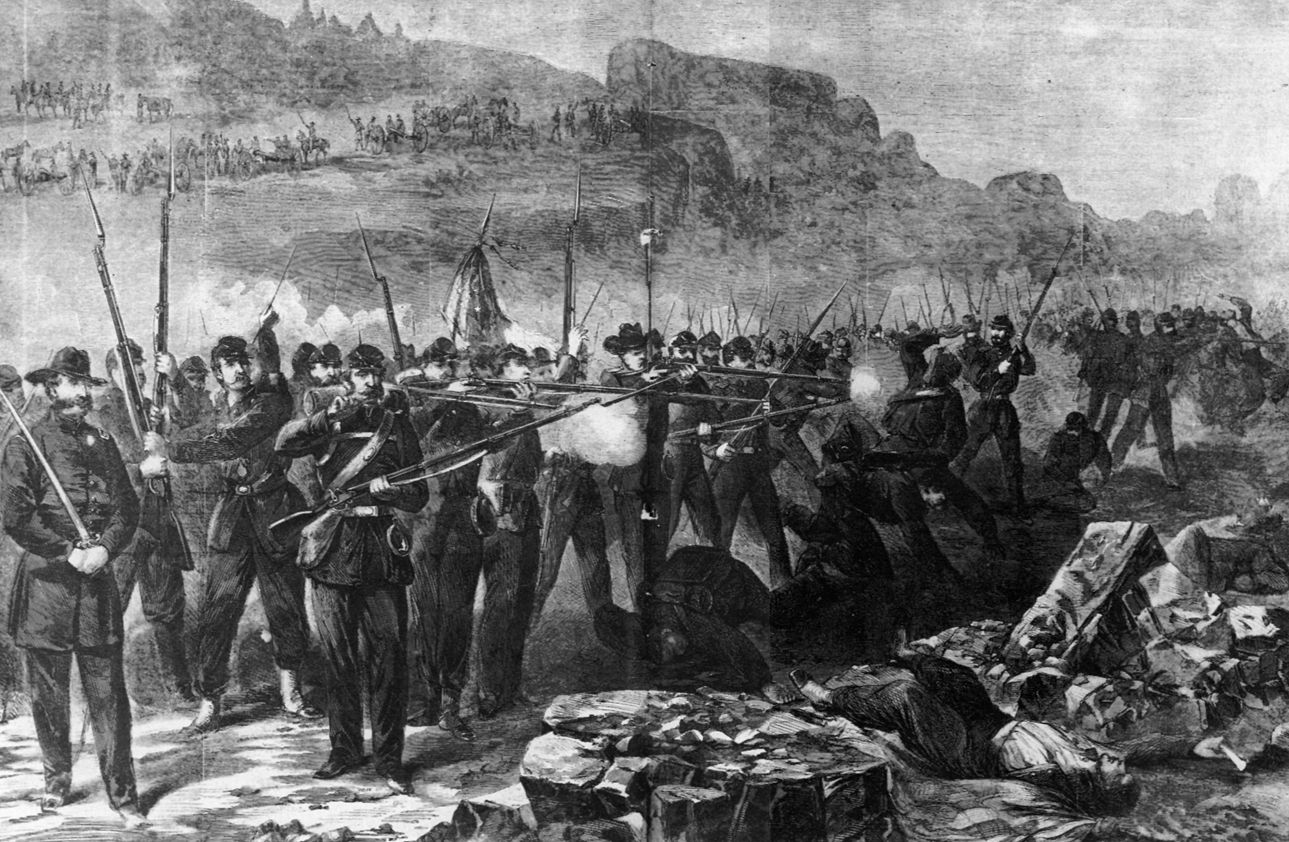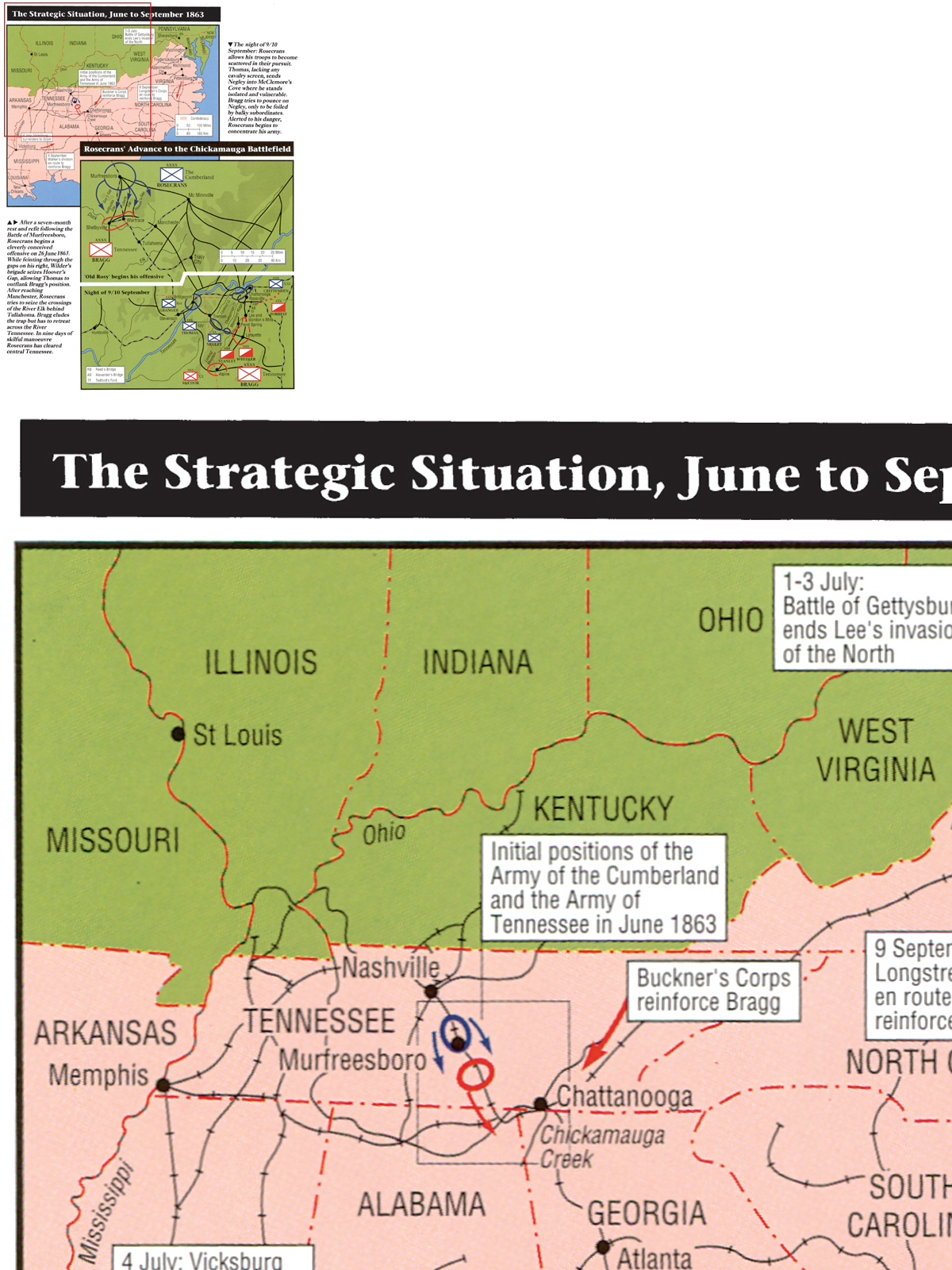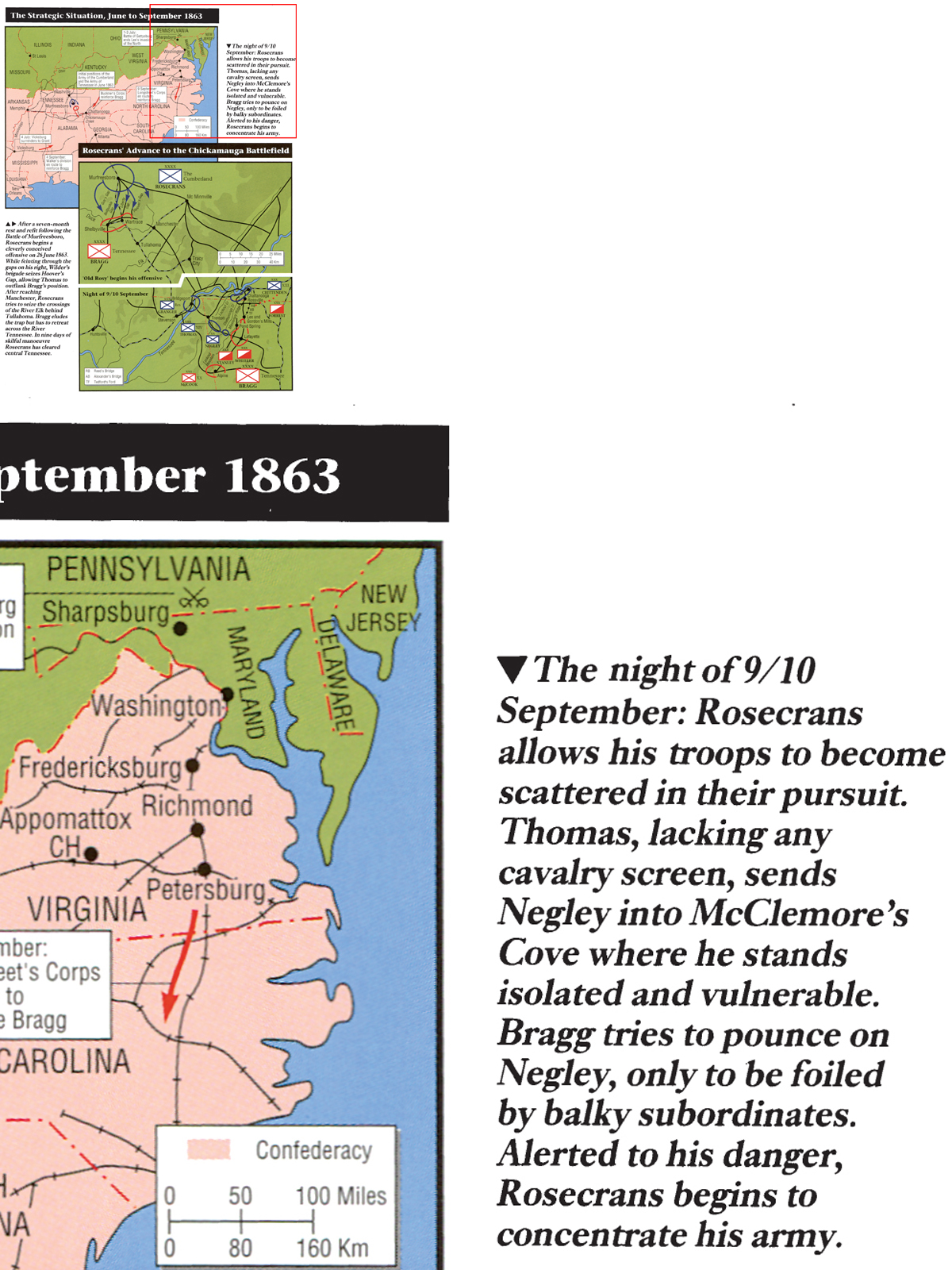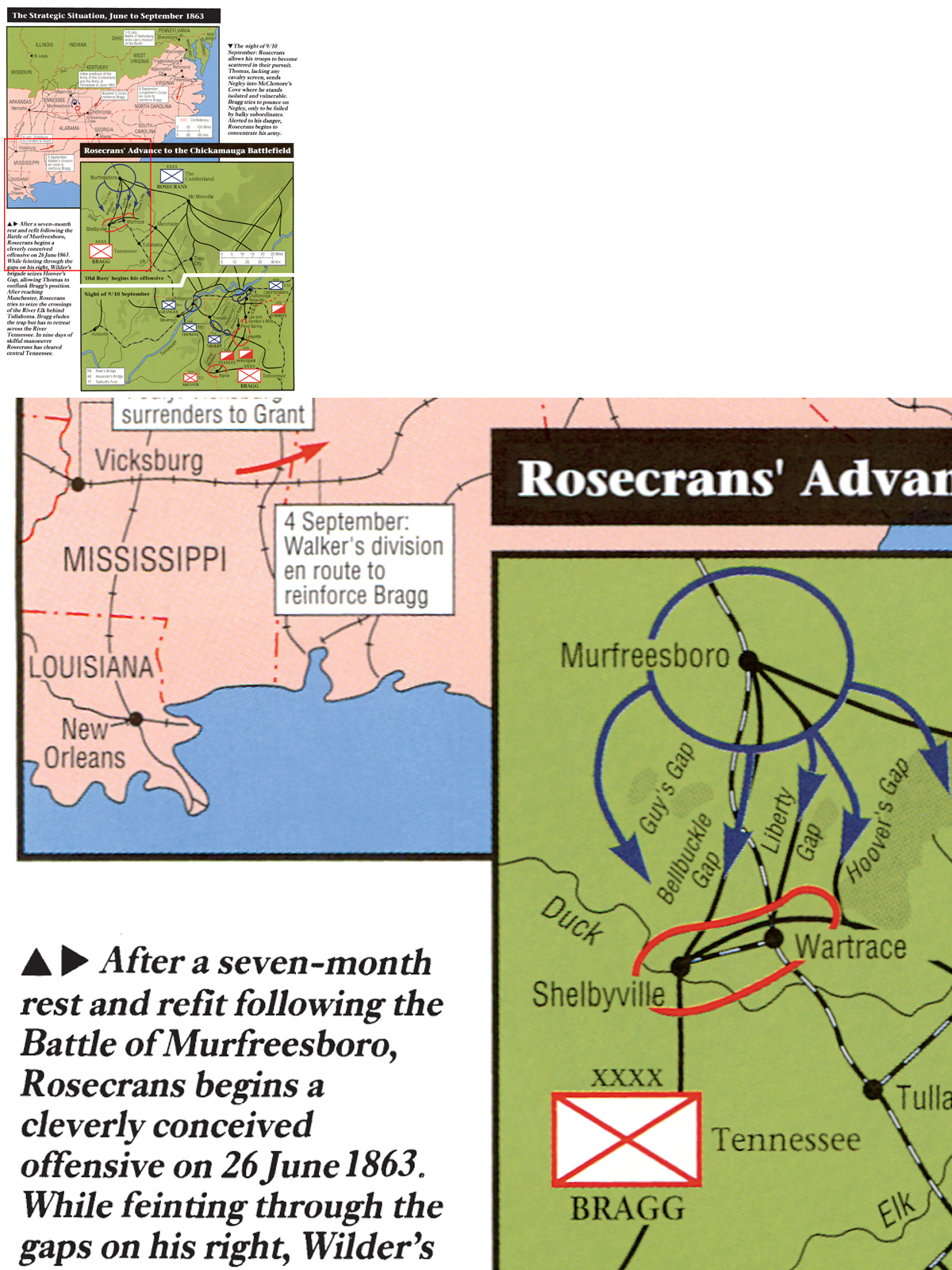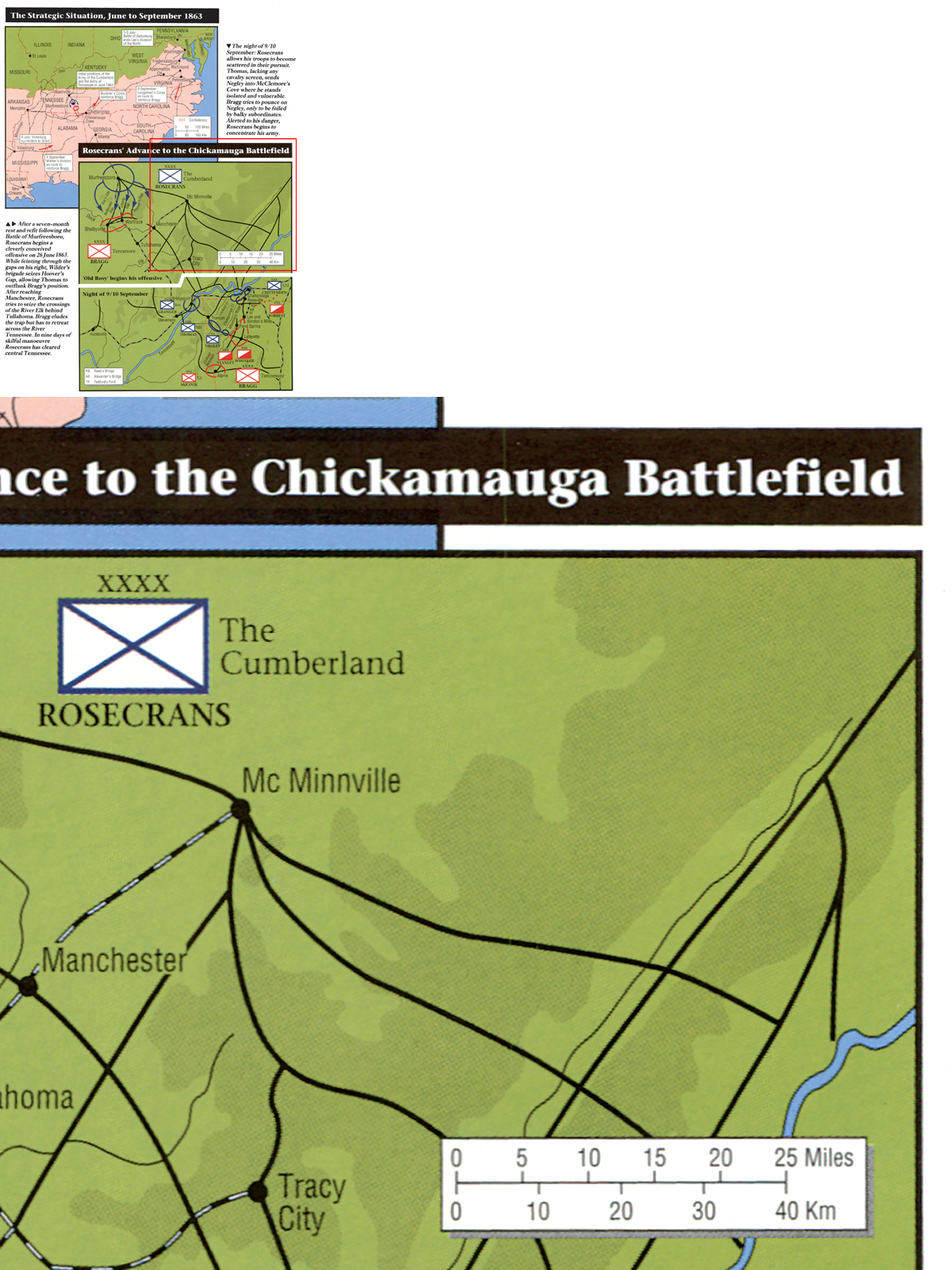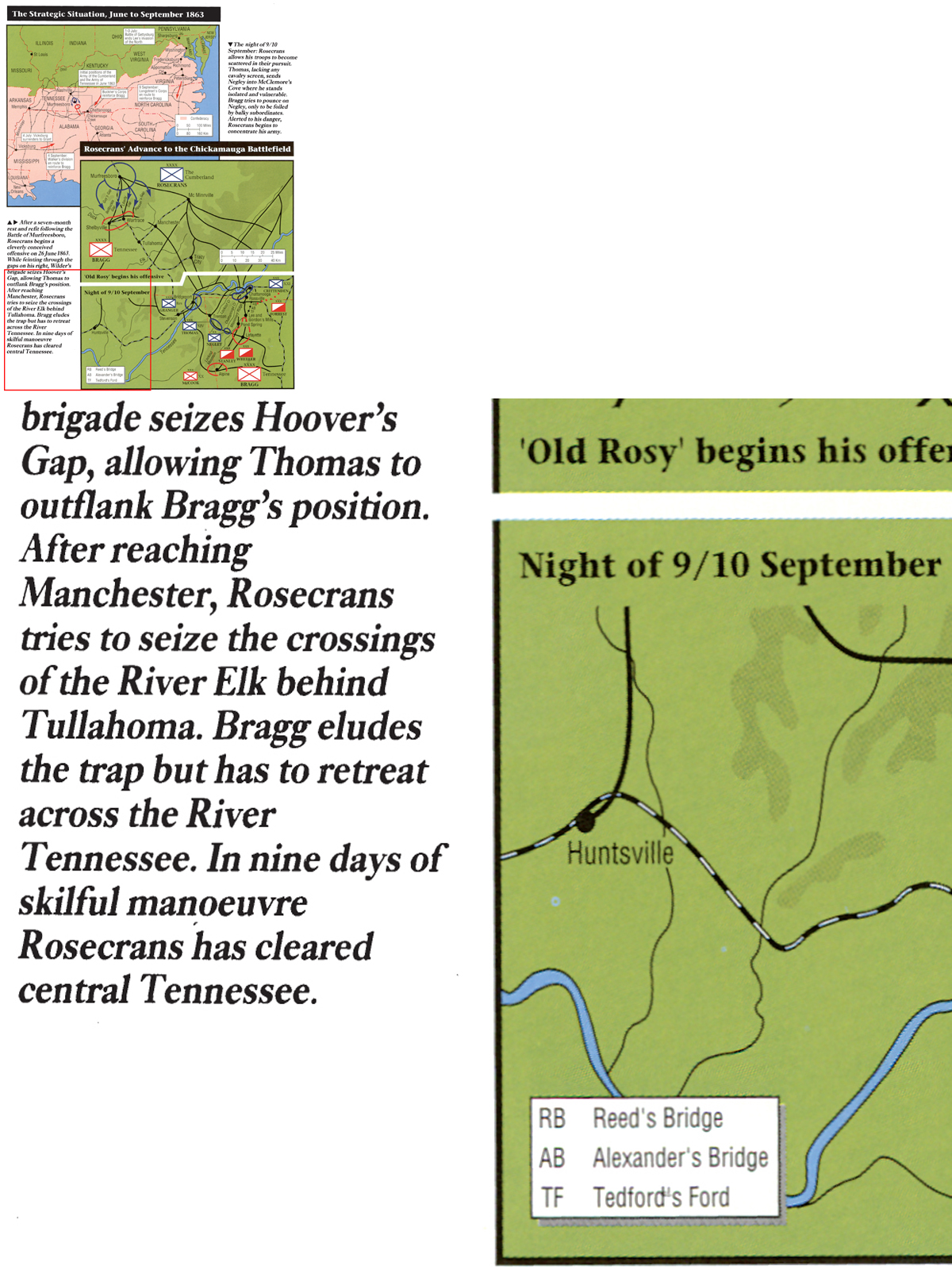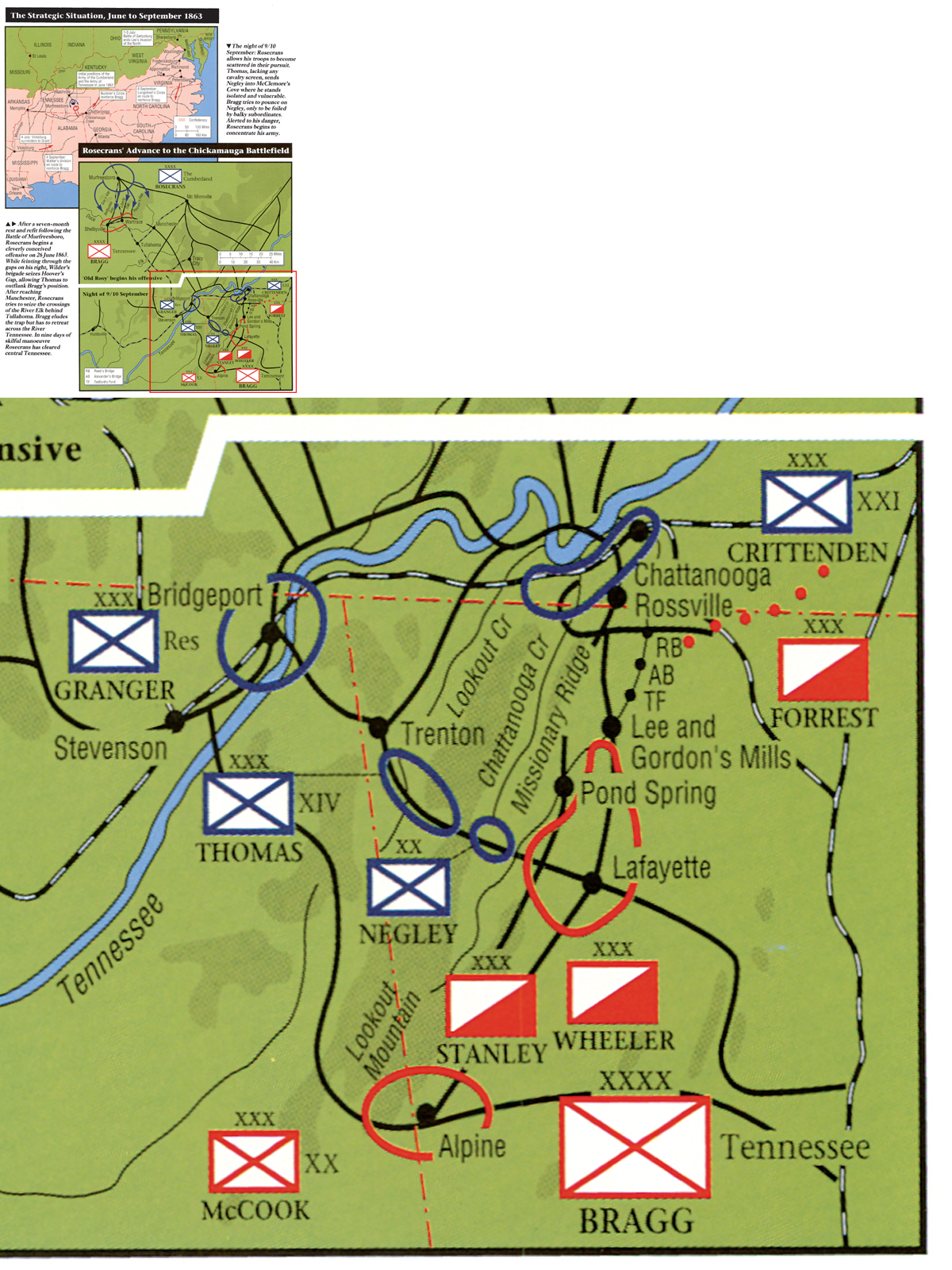A zouave in the 19th Illinois proudly said of his units counter-attack and capture of General Adams: No regiment in the Confederacy of anywhere near equal size had any business with the 19th Illinois at close quarters. It was the only regiment in the whole army drilled in the French bayonet drill by their zouave officers and this gave them a confidence nothing could shake. Other zouave regiments at the battle included 2nd Kentucky, 2nd Ohio, 1st Wisconsin, 4th and 15th Alabama, 6th and 154th Tennessee, and 9th Texas. (National Archives)
GENERAL EDITOR DAVID G. CHANDLER
CHICKAMAUGA 1863
THE RIVER OF DEATH
JAMES R. ARNOLD
Harkers brigade defended its sector of Horseshoe Ridge by an exhibition of something rare on any Civil War battlefield, controlled volley firing. The brigade occupied a crest line position in two lines. When the Rebels attacked the first line fired a volley and withdrew behind the crest to reload. The second line then volleyed and exchanged position with the first. (Library of Congress)
First published in Great Britain in 1992 by Osprey Publishing,
Elms Court, Chapel Way, Botley,
Oxford OX2 9LP, United Kingdom.
Copyright 1992
Osprey Publishing Ltd.
Reprinted 1996 (twice), 1998, 1999, 2000
All rights reserved. Apart from any fair dealing for the purpose of private study, research, criticism or review, as permitted under the Copyright Designs and Patents Act, 1988, no part of this publication may be reproduced, stored in a retrieval system, or transmitted in any form or by any means electronic, electrical, chemical, mechanical, optical, photocopying, recording or otherwise, without the prior permission of the copyright owner. Enquiries should be addressed to the Publishers.
ISBN 1 85532 263 3
Produced by DAG Publications Ltd for Osprey Publishing Ltd. Colour birds eye view illustrations by Cilia Eurich. Cartography by Micromap. Wargaming Chickamauga by Paul Stevenson. Wargames consultant Duncan Macfarlane. Typeset by Ronset Typesetters, Darwen, Lancashire. Mono camerawork by M&E Reproductions, North Fambridge, Essex. Printed in China through World Print Ltd.
Acknowledgements
The author wishes to thank: Robert C. Arnold, the photographer who reproduced the Tennessee State Librarys pictures; Jim Ogden, historian at the Chickamauga and Chattanooga National Military Park; the reference librarians at Handley Library, Winchester, Virginia; the archivists of the photograph collections at the National Archives, the Library of Congress, the Tennessee State Library in Nashville and the US Army Military History Institute; Dr Richard Sommers and his staff at the Archives Branch of the US Army Military History Institute it Carlisle, Pennsylvania; Carl Teger, the photographer who reproduced the pictures held at the National Archives and the Military History Institute; Roberta Wiener, for her work as editor and researcher.
F OR A CATALOGUE OF ALL BOOKS PUBLISHED BY O SPREY M ILITARY , A UTOMOTIVE AND A VIATION PLEASE WRITE TO :
The Marketing Manager, Osprey Direct USA,
PO Box 130, Sterling Heights, MI 48311-0130, USA.
Email:
The Marketing Manager, Osprey Direct UK,
PO Box 140, Wellingborough, Northants, NN8 4ZA,
United Kingdom.
Email:
CONTENTS
BACKGROUND TO BATTLE
In mid-summer 1863 the end appeared near for the Confederate States of America. Lee had returned from Gettysburg, his army mauled and shaken. Grant had captured Vicksburg; the River Mississippi ran unvexed to the sea. In the crucial middle ground in Tennessee, Union General William Rosecrans stood poised to advance on Chattanooga, the gateway to the Confederate heartland.
The commander-in-chief of the Confederate military, President Jefferson Davis, reassessed strategic options. He invited his most trusted general, Robert E. Lee, to Richmond for a conference. Lee favoured another try in Virginia. His senior Lieutenant General, James B. Longstreet, disagreed. Longstreet wrote: I know but little of the condition of our affairs in the west, but am inclined to the opinion that our best opportunity for great results is in Tennessee. Longstreets ignorance of affairs in the west was an affliction infecting the entire Confederate high command. Congressmen representing the western Confederacy charged that the Davis government overly ignored the west and concentrated too much attention and resources in Virginia. They maintained that in consequence the Mississippi River had been lost. More recently, General Braxton Bragg, the commander of the Army of Tennessee, had been manoeuvred out of Tennessee. But proponents of a western strategy lacked Lees stature. As a Virginian, Lee, in turn, had great difficulty in looking beyond his beloved states defence, and as a consequence his fixation on Virginia dominated the strategic mentality of the government in Richmond. Then came Gettysburg.
Following that terrible defeat, the western lobby gained Davis ear. The government paid attention when Longstreet proposed going on the defensive in Virginia so as to allow one infantry corps to be transferred west to Tennessee. Longstreet even hinted strongly that Bragg lacked the confidence of his men and that he, Longstreet, should go west to replace him. This step was more than Davis could accept. Instead, Davis asked Lee if he would take command in Tennessee. Lee was reluctant, and upon further reflection Davis too questioned such a transfer. Lee held a mastery over the Federal generals who dared to invade Virginia. His skill would be particularly needed if his army were weakened by the transfer of substantial forces to Tennessee. Looking disaster squarely in the eye, Davis embarked upon a colossal strategic gamble: he would reinforce Bragg by stripping forces from all the other major Confederate armies. Thus strengthened, Bragg would try to destroy Rosecrans army and reverse the tide flowing against the Confederacy. Longstreet would go west with two divisions, not as a replacement for Bragg, but to help him regain Tennessee. As Longstreet mounted his horse to depart, Lee said, Now, general, you must beat those people out in the West. Longstreet replied, If I live; but I would not give a single man of my command for a fruitless victory.

